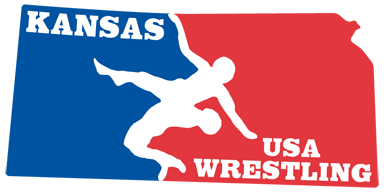 Re: Wrestling .. Quotes, Sayings, Prayers
[Re: clarkgriswold]
#200578
02/22/12 11:45 AM Re: Wrestling .. Quotes, Sayings, Prayers
[Re: clarkgriswold]
#200578
02/22/12 11:45 AM
|
Joined: May 2011
Posts: 25
CWainwright

Junior Member
|

Junior Member
Joined: May 2011
Posts: 25 |
If youíre a competitor, you will have many aches, pains, and injuries. Thatís the way it is. Itís a tough and often unfair world; write your congressman/woman. If you only want to compete when you feel first-class, then you are in the wrong sport, unrealistic, and you belong on Gilliganís island. No sympathy for aches and pains; see the trainer and deal with it.
Athletes consistently compete and are successful with aches, pains, and injuries. Many athletes, unfortunately, do not know the difference and sometimes request not to compete because their uncomfortable. Iím not being nonsensical, turning my back to an injury, and I donít want to injure an athlete further. The reality is everybody has injuries, aches, pains. Youíre not unique, alone, or an exception.
There is a big difference between what is normal and what is often necessary. You have to get beyond the temporary. Every coach in every sport can relate to this topic. I have seen it many times as a way for the athlete to get out of a situation. I have seen athletes fake to the point of concocting stories of hospital visits and stays and upon further investigation, it was all fabricated. I have seen an athlete fake being on crutches for weeks only to find him sprinting up and down the basketball court when he thought I had left. I have heard athletes say theyíre going to hurt themselves if they have to make weight, only to find out they wanted to get drunk instead. And I have heard an athlete tell me his rabbit named ďKeithĒ yes Keith, ate his alarm clock, and thatís why he didnít make it to the weigh-in. I had one guy, twice, not show up to weigh-ins and now heís coaching; whatís he telling the athletes? It only stands to reason that coaches can be skeptical of certain athletes.
Most coaches will tell you itís easy to spot an athlete who is planning an alibi or taking an easy way out. When weíre around athletes on a daily basis and for extended periods of time, weíre aware who is finding a way out and who is legit. We learn a lot through an athleteís practice room habits, responsibility or lack of, and how he has previously handled injury, aches, and pains. We learn the most by what type of an investment the athlete has made.
High investment = high tolerance and competes nearly all the time.
Low investment = low tolerance, misses a lot of competition, practice time, and usually looking for outs.
Words mean nothing; itís all about behavior.
Adversity Ė Does it really matter circumstances are difficult? Why shouldnít they be?
Many athletes want to look like a knight but donít want to bleed like one.
There is a whole other world of toughness within our sport Ė athletes competing with major injuries and go on to compete and win in spite. Itís not the severity of the injury that really matters as much as it is the individualís desire. Now, I am not talking about being ridiculous and putting the athletes in danger. Donít take it personal and think Iím talking about you, although I am.
Every time you step out in competition, there is an element of danger. If you want safety, then competition is not for you. What I am talking about is pushing through soreness, fatigue, pain, and being uncomfortable. Many athletes think they have to feel grand or something is wrong, itís not. A true competitor is willing to give up comfort. News Flash! Everyone is hurt, sore, tired, has school work, cuts weight, relationship struggles, sleep deprivation, and on and on. Make a firm decision that you will put it on the line regardless. Make a decision that you will emerge the victor or take your whipping, but you wonít evade your responsibility because you donít feel ideal. A lot of times we can also trace our lack of feeling ďidealĒ to previous decisions we made, responsibilities we did not fulfill, and corners we previously cut.
Boldness is the first, second, and third most important thing. When you dare nothing, expect nothing. Remember that safety goes against every great dream. Most will turn back at the true point of testing, regardless of the arena. However, sometimes you must cut the lines that tie you to the dock. You have to move beyond the calm waters.
We canít all be champions, but we can fight like one. If we canít win the blue ribbon then we get the red one. And if we canít get the red one, then we can still feel proud, responsible, and distance ourselves from regret and diminishing our self esteem.
Injuries, soreness, aches, fatigue will challenge you but donít have to stop you. You canít only compete when you know youíre going to win, or feel 100%. How you feel does not matter. You can tolerate being uncomfortable. You can still compete! You can still succeed and you may have to compete for your championship on a day you feel at 60%.
Discipline, perseverance, delayed gratification, commitment, responsibility, and personal satisfaction are qualities you potentially take from this sport and dominate in other areas of your life. I believe the efforts and commitments you make during your athletic and academic career tell a lot about your future efforts or lack of. If youíre full of fish stories, how you caught a whopper and a rabbit named Keith ate your clock, than this sport will mistreat and harass you. Ask yourself, are you really made up of what you want others to think you are? I would venture to say most are scared or doubtful to a degree. There is no shame in this; we all are! The difference is those who persist/proceed in spite. Remember, if we threw all of our adversities in a pile with others, we would gladly grab our own back. Others have been through what weíre going through and ďtriumphed,Ē so can you. Others are often wrong about us, and weíre often wrong about ourselves. You are able to transcend any real or imagined limitation; this starts right now!
"Sport, properly directed, develops character, makes a man courageous, a generous loser, and a gracious victor; it refines the senses, gives intellectual penetration, and steels the will to endurance."
-Pope Pius XII
|
|
|
|
Entire Thread
|

 Wrestling .. Quotes, Sayings, Prayers
Wrestling .. Quotes, Sayings, Prayers
|
L Grater
|
02/21/12 03:47 PM
|

 Re: Wrestling .. Quotes, Sayings, Prayers
Re: Wrestling .. Quotes, Sayings, Prayers
|
DawgHouse
|
02/21/12 04:50 PM
|

 Re: Wrestling .. Quotes, Sayings, Prayers
Re: Wrestling .. Quotes, Sayings, Prayers
|
Coach Samson
|
02/21/12 05:17 PM
|

 Re: Wrestling .. Quotes, Sayings, Prayers
Re: Wrestling .. Quotes, Sayings, Prayers
|
doug747
|
02/21/12 10:04 PM
|

 Re: Wrestling .. Quotes, Sayings, Prayers
Re: Wrestling .. Quotes, Sayings, Prayers
|
clarkgriswold
|
02/21/12 10:42 PM
|

 Re: Wrestling .. Quotes, Sayings, Prayers
Re: Wrestling .. Quotes, Sayings, Prayers
|
CWainwright
|
02/22/12 11:45 AM
|

 Re: Wrestling .. Quotes, Sayings, Prayers
Re: Wrestling .. Quotes, Sayings, Prayers
|
His Momma
|
02/22/12 12:02 PM
|

 Re: Wrestling .. Quotes, Sayings, Prayers
Re: Wrestling .. Quotes, Sayings, Prayers
|
firehawk88
|
02/22/12 12:09 PM
|

 Re: Wrestling .. Quotes, Sayings, Prayers
Re: Wrestling .. Quotes, Sayings, Prayers
|
airbornevetX2
|
02/22/12 04:17 PM
|

 Re: Wrestling .. Quotes, Sayings, Prayers
Re: Wrestling .. Quotes, Sayings, Prayers
|
BrandonPigorsch
|
02/22/12 06:20 PM
|

 Re: Wrestling .. Quotes, Sayings, Prayers
Re: Wrestling .. Quotes, Sayings, Prayers
|
Coach Prieto
|
02/22/12 08:21 PM
|

 Re: Wrestling .. Quotes, Sayings, Prayers
Re: Wrestling .. Quotes, Sayings, Prayers
|
BUCKEYE
|
02/23/12 02:48 PM
|

 Re: Wrestling .. Quotes, Sayings, Prayers
Re: Wrestling .. Quotes, Sayings, Prayers
|
usawks1
|
02/23/12 03:40 PM
|

 Re: Wrestling .. Quotes, Sayings, Prayers
Re: Wrestling .. Quotes, Sayings, Prayers
|
jeffroberts
|
02/23/12 06:03 PM
|
|
|
|
0 registered members (),
128
guests, and 0
spiders. |
|
Key:
Admin,
Global Mod,
Mod
|
|
|
Forums10
Topics35,939
Posts250,371
Members12,298
| |
Most Online709
Nov 21st, 2011
|
|
|







